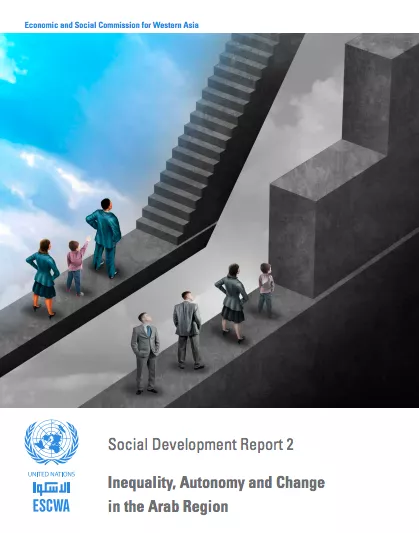
Executive Summary
Recent literature on inequality links equality of opportunity and outcome to equality of autonomy. It views human rights as interconnected: people cannot have full access to their social and economic rights and enjoy equal opportunities, without having access to their civil and political rights. Adopting this perspective, the present report examines how inequality and limited personal autonomy are likely to affect the prevailing ‘political settlement’ in the Arab region. It does so by first providing an overview of the political economy of the region. It then examines equality of opportunity at the macro-level, in terms of access to income, education and employment. Moving to the microlevel, the report defines and measures autonomy in the Arab region and compares its levels to values held in the rest of the world, in different countries and in different socioeconomic groups. It demonstrates the existence of a perceived autonomy gap in the Arab region, investigates its distribution among countries and groups, and analyses the reasons behind this gap. It finally examines the implications of the autonomy gap on attitudes towards various forms of inequality in the region.
This report, the second Social Development Report from ESCWA, documents an increase in inequality of access to good quality education and to good jobs in several countries of the region, which may further entrench income inequalities. It then looks at personal autonomy with the assumption that societies where individuals are autonomous can achieve increased outcomes, and where there is political inclusion, can find solutions to improve the quality of public services and reduce the existing gaps in labour markets, enhancing equality of opportunity. The report finds that while the aspiration for personal autonomy has risen in Arab countries, this has happened mostly among young educated individuals with perceived low levels of control over their lives and, consequently, little power for supporting social change. The report also highlights that in the Arab region several values that enhance social cohesion, such as tolerance for social and religious differences, have lagged behind changes happening globally. It concludes by recommending a reform agenda, which could be tailored for the different situations and needs of countries, focused on reducing inequality of access to quality services and jobs, and on developing social values geared towards increased personal autonomy, mainly through a modernized education system.
Diwan, Ishac and Djavad Salehi-Isfahani. “Social Development Report 2: Inequality, Autonomy and Change in the Arab Region.” United Nations, May, 2018
The full text of this publication is available via United Nations.





